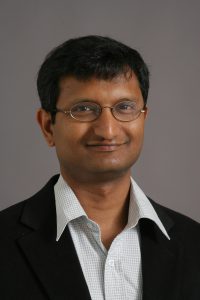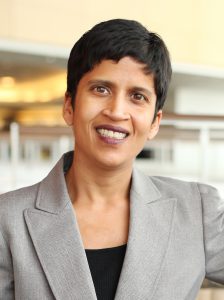Archive for September, 2017
Enrollment steady at UT while retention, academic preparedness improve
Tuesday, September 12th, 2017The University of Toledo continues to make strides in student success as it works to retain and graduate more students.
Total enrollment for fall semester 2017 is 20,579, according to official 15-day census numbers. UT had 20,648 students enrolled in fall semester 2016.
The academic preparedness of the incoming class improved with an average ACT score of 22.9, an increase from 22.7 in fall 2016, and an average GPA of 3.42, up from 3.36 the year before.
Included in the enrollment numbers is an increase in the first-year to second-year undergraduate retention rate, which is the fourth consecutive year the University has experienced an increase as it intensifies its focus on retaining and graduating more students. UT also saw an increase in the number of students continuing their education across all class levels.
“Today’s students have many options as they seek an engaging college experience, and we continue to work hard to share the wonderful opportunities available at The University of Toledo,” President Sharon L. Gaber said. “We don’t want students to simply enroll. We want them to succeed, graduate from UT and go on to pursue successful careers. We are committed to maintaining this positive momentum.”
The fall 2017 enrollment includes 16,194 undergraduate students and 4,385 graduate and professional students. The fall 2016 enrollment included 16,247 undergraduates and 4,401 graduate students.
Among the areas of notable growth for UT is the College of Law, which experienced a more than 10 percent increase in students this fall, and the Colleges of Business and Innovation, Engineering, Natural Sciences and Mathematics, and Nursing.
Revised September UT Board of Trustees Meetings Schedule
Tuesday, September 12th, 2017BOARD OF TRUSTEES MEETINGS
Revised Schedule
Wednesday, Sept. 13, 2017
Driscoll Alumni Center, Board Room
5:30 p.m. Board of Trustees Social Dinner
Monday, Sept. 18, 2017
Driscoll Alumni Center, Schmakel Room
12:30 p.m. Clinical Affairs Committee Meeting
1:45 p.m. Academic and Student Affairs Committee Meeting
2 p.m. Finance and Audit Committee Meeting
2:15 p.m. Trusteeship and Governance Committee Meeting
2:30 p.m. Board of Trustees Meeting
A luncheon for the trustees will be held at noon in the Driscoll Alumni Center Board Room.
Any questions may be directed to the Office of University Communications by calling 419.530.2410 or via email at meghan.cunningham@utoledo.edu.
Nearly $2.4 million federal grant awarded to help UT researcher turn algae into fuel source
Monday, September 11th, 2017The U.S. Department of Energy awarded The University of Toledo a nearly $2.4 million grant to find a faster, cleaner process to produce fuel using algae without needing to add concentrated carbon dioxide.
Dr. Sridhar Viamajala, UT associate professor of chemical engineering, said this three-year project to help algal fuels replace fossil fuels is a continuation of his previous work in partnership with Montana State University, the University of North Carolina at Chapel Hill and Arizona State University.

Dr. Sridhar Viamajala
“We are trying to speed up the growth of algae by providing a very high pH environment that allows algae to take up carbon dioxide gas from the atmosphere more efficiently and prevent unwanted contamination,” Viamajala said. “Since it grows in water, algae doesn’t have as much carbon dioxide available. We are trying to improve the cleaner fuel potential.”
The project to create a comprehensive strategy for stable, high-productivity cultivation of microalgae with controllable biomass composition also includes genetic testing.
“This funding puts northwest Ohio at the forefront of a national effort to create new technologies and methods for biofuels,” said Congresswoman Marcy Kaptur. “These types of programs can lead to breakthroughs that will create American jobs and enhance our energy security, which is why I remain committed to renewable energy and advanced research from my role overseeing Department of Energy funding on the Appropriations Committee. Congratulations to the researchers at The University of Toledo for receiving this award.”
The research is funded through the U.S. Department of Energy’s Office of Energy Efficiency and Renewable Energy and Office of Bioenergy Technology.
UT’s grant is part of about $8.8 million recently announced by the U.S. Department of Energy for projects that will deliver high-impact tools and techniques for increasing the productivity of algae organisms in order to reduce the costs of producing algal biofuels and bioproducts.
Public invited to law lecture at UT on immigration enforcement Sept. 11
Friday, September 8th, 2017A nationally known expert on immigration law is presenting a lecture at The University of Toledo next week titled “Beyond Deportation: The Role of Prosecutorial Discretion in Immigration Cases in the Wake of the Trump Administration.”
Shoba Sivaprasad Wadhia, the Samuel Weiss Faculty Scholar and Clinical Professor of Law at the Pennsylvania State University School of Law, will present the annual Cannon Lecture at noon on Monday, Sept. 11 in the UT Law Center McQuade Law Auditorium.
“This is a timely topic from a recognized national expert,” Geoffrey Rapp, associate dean for academic affairs in the UT College of Law, said. “With a focus on the role of individual decision makers in immigration enforcement, it’s a perfect fit for this year’s Cannon Lecture.”
This free, public lecture is part of the Cannon Lecture Series, which was established in 1980 to honor former Toledo attorney Joseph A. Cannon. The series hosts nationally known individuals who explore both the humanistic dimensions and limitations of the U.S. legal system. Food and beverages will be provided.

Shoba Sivaprasad Wadhia
Wadhia published her New York University Press book, “Beyond Deportation: The Role of Prosecutorial Discretion in Immigration Cases,” in 2015. Her book traces the role of prosecutorial discretion from the case of the Beatles front man John Lennon to the challenges of enforcing immigration policy in the post 9/11 era and during the Obama administration.
Her work also has been published in leading journals, including Emory Law Journal, Texas Law Review, and Columbia Journal of Race and Law. Additionally, her work has been cited by federal courts, and she has appeared in popular media, including MSNBC, C-SPAN, The New York Times Magazine, The Washington Post and The Wall Street Journal.
Prior to entering teaching, Wadhia served as deputy director of the National Immigration Forum, an advocacy organization that provided advice to government officials and the public on topics including immigration reform and the creation of the Department of Homeland Security.
At the Pennsylvania State University School of Law, Wadhia teaches asylum and refugee law as well as immigration law. She also serves as the founder and director of the Center for Immigrants’ Rights Clinic, working with law students in the clinical immigration law setting.
She received a bachelor of arts degree from Indiana University and her law degree from Georgetown University.
UT ranked Ohio’s best four-year college
Thursday, September 7th, 2017The University of Toledo is the best four-year college in Ohio in a new ranking that focuses on affordability, flexibility and student services.
Schools.com, an online source for education information, compiled the list using data from the National Center for Education Statistics to evaluate colleges and universities across the state.
“It’s an honor to be recognized as the best school in the state for our success serving students with a high-quality education at an exceptional value. No matter what you want to study, you can find it here,” UT President Sharon L. Gaber said. “We are committed to helping students succeed.”
According to Schools.com, UT is No. 1 because the University “emerged from our analysis as the best one overall and also one of the best online colleges in Ohio. The University of Toledo ranked No. 2 in the state for its number of degrees offered via distance education — 46 of them, to be precise — and reported a healthy 36 percent of students enrolled in at least some online coursework. One of the larger schools on our list, UT also provided its students with a No. 4-ranked selection of degrees available on campus.”
Schools.com listed financial aid as a “bright spot” for UT. According to the organization, “Only three other schools in the state provided their students with a greater proportion of institutional grant aid relative to average tuition and fees costs than UT.”
The average debt of graduates also was a factor. A recent analysis of student loan debt by LendEDU revealed UT graduates have the lowest student loan debt among the state’s public colleges. The average student loan debt per borrower for UT’s class of 2016 was $24,437, which ranks the University the best among Ohio’s public colleges and universities.
September UT Board of Trustees Meetings
Tuesday, September 5th, 2017BOARD OF TRUSTEES MEETINGS
Thursday, Sept. 7, 2017
Radisson Hotel, 3100 Restaurant
8 a.m. Board of Trustees Social Breakfast
Wednesday, Sept. 13, 2017
Driscoll Alumni Center, Board Room
5:30 p.m. Board of Trustees Social Dinner
Monday, Sept. 18, 2017
Driscoll Alumni Center, Schmakel Room
12:30 p.m. Clinical Affairs Committee Meeting
1 p.m. Academic and Student Affairs Committee Meeting
1:15 p.m. Finance and Audit Committee Meeting
1:30 p.m. Trusteeship and Governance Committee Meeting
1:45 Board of Trustees Meeting
A luncheon for the trustees will be held at noon in the Driscoll Alumni Center Board Room.
Any questions may be directed to the Office of University Communications by calling 419.530.2410 or via email at meghan.cunningham@utoledo.edu.
Ribbon cutting Sept. 5 to celebrate new Drinking Water Research Lab
Monday, September 4th, 2017A new Drinking Water Research Laboratory at The University of Toledo will allow local municipalities to quickly and easily test the safety of the public water supply.
A $500,000 grant from the State of Ohio Community Capital Program provided the state-of-the-art technology and renovations for the laboratory in the UT College of Engineering.
A ribbon-cutting ceremony will be held at 10 a.m. Tuesday, Sept. 5 in North Engineering Room 1600 with UT researchers joined by elected officials and community partners.
The lab’s new liquid chromatography mass spectrometer system and new flow cytometer will be used to detect various cyanotoxins, such as microcystin from the toxic algal blooms in Lake Erie, and assimilable organic carbon, which is used by harmful microorganisms, to ensure the contaminants are not present in drinking water.
The dedicated lab focused exclusively on drinking water research eliminates concerns of cross contamination from other samples to allow very low detection limits for improved testing accuracy.
“Water treatment plants in Ohio face new challenges from a host of emerging algal toxins, as well as contaminants from other emerging micropollutants, such as pharmaceutical products or microplastics, in their source waters,” said Dr. Youngwoo Seo, associate professor in UT’s civil and environmental engineering and chemical engineering departments. “By engaging with the lab, the municipalities can get early warning signs of new and emerging algal toxins, as well as quantification of existing toxins during cases of concern.”
“Many water utilities have difficulties in continuously analyzing samples due to high costs and limited time. They will now have access to the lab on a regular basis for monitoring contaminants in treated water, as well as samples from different points in the treatment process,” said Dr. Joseph G. Lawrence, UT research professor and director of the Center for Materials and Sensor Characterization. “A water utility could, for example, send water samples every week during the algal bloom to track the concentration of toxins in source water and treated water so that they can make informed decisions on the type of treatment.”
Water quality is a major research focus at UT. With $12.5 million in active grants underway, UT experts are studying algal blooms, invasive species such as Asian carp, and pollutants. Researchers are looking for pathways to restore our greatest natural resource for future generations to ensure our communities continue to have access to safe drinking water.

